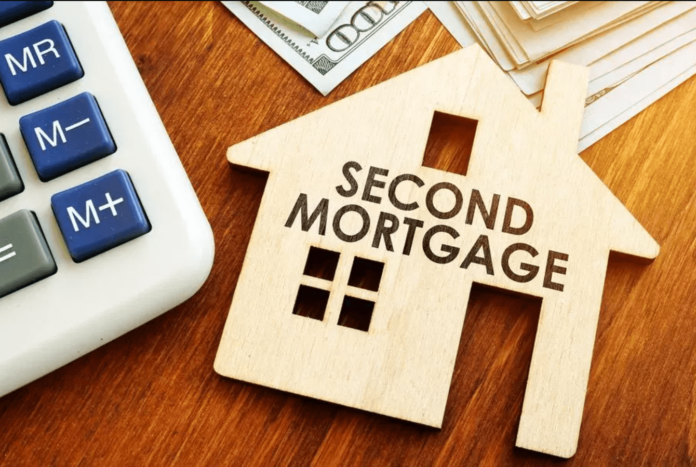In the realm of real estate and homeownership, mortgage rates are a critical aspect that can significantly impact your financial decisions. Whether you’re considering a mortgage to fund a home improvement project, consolidate debt, or cover unexpected expenses, it’s essential to grasp the nuances of rates. This article will provide you with a comprehensive understanding of what second mortgage rates entail and how they can influence your financial strategy.
What Are Second Mortgage Rates?
Second mortgage rates refer to the interest rates associated with a mortgage, which is a loan secured by the equity in your home. the type of second mortgage you choose, and current market conditions.
Types of Second Mortgages
Home Equity Loans
Against the equity in your home. You’ll repay the loan in equal monthly instalments over a specified term.
Home Equity Lines of Credit (HELOCs)
HELOCs offer a flexible borrowing option with adjustable interest rates. They function like a credit card, allowing you to draw funds up to a predetermined credit limit as needed.
Factors Affecting Second Mortgage Rates
Loan-to-Value Ratio (LTV)
Appraised value that you’re borrowing against. A lower LTV ratio typically results in better rates.
Current Market Conditions
Mortgage rates can also fluctuate based on the overall economic climate. When interest rates in the broader market rise or fall, mortgage rates may follow suit.
Fixed vs. Adjustable Mortgage Rates
Fixed Rates
Fixed-rate second mortgages offer stability with a consistent interest rate throughout the loan term. This is a great option when you want predictable monthly payments.
Adjustable Rates
Adjustable-rate mortgages come with interest rates that can change over time, often tied to a specific financial index. While they may start with lower rates, they can increase, potentially leading to higher payments.
How to Secure the Best Rate
To secure the most favorable mortgage rate, consider taking these steps:
Improve Your Credit Score
Work on enhancing your credit score by paying bills on time and reducing outstanding debt.
Lower Your LTV Ratio
Increase your home’s equity by paying down your primary mortgage or making home improvements.
Shop Around for Lenders
Explore multiple lenders and gather quotes to compare rates and terms.
Pros and Cons of Second Mortgages
Pros
- Access to a substantial amount of cash.
- Interest may be tax-deductible.
- Fixed monthly payments with home equity loans.
Cons
- Risk of losing your home through foreclosure.
- Variable interest rates with HELOCs.
- Additional closing costs and fees.
The Application Process
Securing a mortgage involves several steps, including documentation, appraisal, and closing costs. Ensure you understand these processes before proceeding.
Risks and Alternatives
Consider the potential risks, such as defaulting on your mortgage, and explore alternative financing options before committing.
Case Study: Using a Second Mortgage Wisely
Learn how others have used mortgages for debt consolidation or home renovation projects to achieve their financial goals.
The Impact of Economic Factors
Stay informed about how economic factors, like interest rate trends and economic stability, can influence mortgage rates.
Legal Aspects of Mortgages
Understand the legal requirements and foreclosure procedures of mortgages to protect your interests.
Mortgage Rates in Today’s Market
Explore the current trends and predictions regarding rates in today’s ever-changing market.
How Mortgage Rates Can Impact Your Finances
Discover how your choice of mortgage rates can affect your monthly payments and long-term financial goals. Read more…
Conclusion
In conclusion, second mortgage rates are crucial to homeownership and financial planning. Understanding the intricacies of second mortgages allows you to make informed decisions about your home equity and financial future. Consult with financial experts before proceeding with a second mortgage.
Frequently Asked Questions (FAQs)
FAQ 1: Are second mortgage higher than first mortgage rates?
Second mortgage tend to be higher than first mortgage rates due to the increased risk for lenders.
FAQ 2: Can I get a mortgage with bad credit?
Getting a mortgage with bad credit is possible, but you may face higher interest rates and stricter terms.
FAQ 3: What is the typical term for a mortgage?
Mortgage terms can vary but often range from 5 to 30 years.
FAQ 4: Can I use a mortgage for investment purposes?
Yes, you can use a mortgage for investment, such as purchasing another property, but it comes with its own set of risks.
FAQ 5: Is it possible to refinance a mortgage?
Yes, refinancing a mortgage is an option to secure better rates or terms, similar to refinancing a first mortgage.

